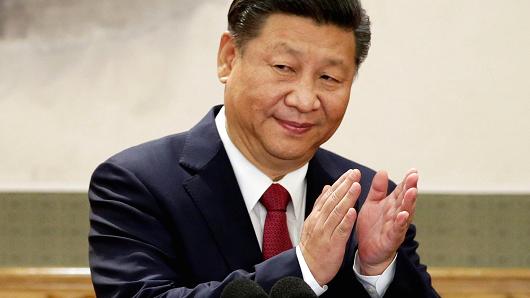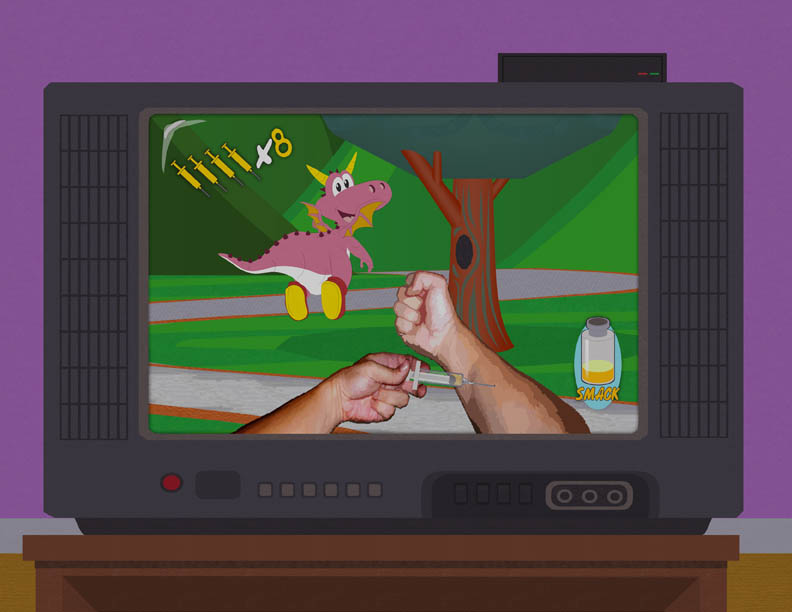Late last summer, the haze still hung heavy over the alleyways of Istanbul. It was shortly after the most recent coup against the Sultan. The oppressive humidity matched the overbearing nature with which the Sultan’s men patrolled the streets. Fear hung heavy as teachers, professors, writers, and many others were wrapped up in the Sultan’s timed overreactions.
I found myself weary after arriving on the Express and eagerly sought refuge in a small but busy pub recommended by a friend. The journey on the Express was rather tiresome. I was constantly hassled by a Serb (or possibly a closet Moldovan) named Nikolai who was a far less interesting man than he thought.
Most seats in Zeki’s were taken, but I found enough open space at the bar. Smoke, conversation, Istanbul surrounded the place. It was good to be back on the road. It warmed me even before my first sip. But my first drink of scotch proved to be a poor choice. Even the most delicious of beverages can be drilled through by the worst of heat. At the barkeep’s recommendation, I switched to the raki, an inferior liquid but much preferable given the weather. Even the hint of ice, normally hated, was more than welcome to me.
“Good enough?” said the barkeep.
“Quite,” I replied, hoisting the glass toward him, “And your place I take it?”
He nodded, “Indeed, for many years now. May I ask how you found it back here, foreigner that you are.” “A friend,” I replied scantly.
“Ah,” Zeki scanned his establishment, “But what brings you to this city of life in these dark times?”
“Are these really dark times?” I asked.
“What? Oh,” he chuckled deeply, “No, no not really. What’s another coup?”
I smiled, looking down at my drink, “Just another day.”
He swiped his finger through the air, “Precisely!” He shrugged, “And after all, life doesn’t change, not even here.”
“No?”
“No, no, the Sultan shall be the Sultan, whoever that is, and life goes on. After all, the Sultan’s men do not change.”
“No?”
“They are the same, whoever they are,” he shrugged, “ I pay my bribes, the protection if offered, life goes on,” he said as if discussing why summers were considered hot. “But you Sir, you are here…”
I sipped deeply, “I seek Alexander.”
“Oh,” Zeki laughed heartedly, as if I’d just stated I intended to find The Prophet himself, “Well then, here he is, here he is, Sir.” Zeki mockingly pointed to a crusted framed picture, one of many, that adorned the wall atop the bar. And indeed, there among the many of history’s great faces was the greatest general himself. And off Zeki was, to another customer down the bar.
“Alexander’s dead,” from nowhere offered the man next to me. A man I’d not noticed thus far, so unassuming he was. He was far older than I, and also not a local. He slumped deeply at the bar, tired, his eyes closed, but not drunk, not wholly yet anyways.
“Yes,” I cautiously offered, “very much dead. But I seek the truth of him.” “Yeah, why, where?”
Not knowing this man, or his motives, I sought to learn more about him before ever speaking further. “And you Sir, I cannot place your accent for certain, though I can guess.” Without a shadow of guile the man gave himself forth, to a total stranger as I, “I’m Cornish.”
“Oh,” I said, shaking my head in pity and disgust, “I am sorry.”
He shrugged, resigned. And without any hesitation, he opened his life to me. “If you’re going after Alexander I’ll go too.”
So taken aback I was by his statement that I was dumbfounded. Seeking refuge in my glass, I found it empty. And so to pass the thought, I simply asked, “And your name?” “George,” he flatly stated.
“And where from George?”
“Cornwall…”
“No, no,…”
“Ah, Afghanistan,” he said, “a terrible place, and one that was equally as kind to Alexander as it was to me.”
And thus it all began to add up for me fairly quickly. The broken demeanor, the drinks, the resignation, and then, the pistol, carefully and professionally concealed within his clothing. The long look in his eyes, the old, but still strong frame of this man of the people of the English sea. I could use him, why not. Clearly here was a man in need of purpose. And men in need of purpose are the most useful of men.
“Not to Afghanistan, not yet, but certainly, if you need something to do, I’d welcome such a man as you.”
He nodded, slowly, pleased, grunted, and briefly hoisted his glass to me, emptied it, and motioned to Zeki for another. And another found him, and I as well.
“I hear all in my bar,” said Zeki to me as he poured.
“As any good bar should,” I responded.
“Our part of the world is generally unkind, especially to two foreign, eh, men, such as yourself,” Zeki capped the bottle with force.
I nodded, not knowing why.
Zeki leaned against the rail, his ear halfheartedly to mine. He drew incompressible designs on the bar’s surface, “Help, help is always helpful to those who need help.” I said nothing.
“A man on his travels in this part of the world needs friends, friends not in the fray,” Zeki spoke relatively softly, “I could perhaps…”
“I know you not.”
“Oh,” he smiled in a way that cleared my throat, “but even your presence here came at the recommendation of a, friend, yes?” Zeki scanned his pub briefly, “And in the end, I know who you are. And you shall thus see that I know your Guests, and have done business with them in the past. And yet,” he leaned back, proudly, “I have not presented you to the Sultan’s men. Though this would benefit me greatly.”
Sometimes knowing a man takes a lifetime. Sometimes you never actually know a man. Sometimes you have to take risks on men. Sometimes they take risks on you. And yet besides all this, I found not the need, but the desire to take a risk upon this Zeki. Here was a man, indeed recommended by my friend, but for what, a drink, or a chance? And here was this Zeki, self-assured, honest, even reckless to having met me a few minutes ago had yet already chanced to inform me that he had the Sultan’s men in his pay. That he thought nothing of the Sultan’s rule itself. Yes, yes why not risk this man, why not risk it when I had nothing else on offer. After all, even Alexander himself knew the importance of never venturing into the darkness without securing one’s rear area and homefront.
“And for you, so what?” I asked cautiously.
“Nothing,” he leaned back, “Not yet. But write to me,” he said, “when it is my time, you will know, and you will answer.”
Always the risk, but I nodded, once, hoping one day, I did not regret it. I could sense George’s uneasiness. He was back against his stool, one hand now always free. But it was my decision. Not George’s. And if George was to journey with me, he should understand this.
“But in the meantime,” Zeki held out his palm to behind me, “help, help for the two foreign dogs.” Behind us stepped forth two men. My attention first turned to the larger man, cloaked, and certainly a predator. “Mut,” (he pronounced it ‘moot’) Zeki named him, “And at your service. The finest of Oran’s backstreets.”
Mut fit his name’s spelling if not pronunciation well. His face and body, Berber, Arab, even if (dare I never have mentioned to him) perhaps a touch of Algérie in his complexion.
When confronted with an attack dog, directness is either the worst or best of options. I chanced best, simply stating, “And what is your talent, Sir.”
Mut opened his cloak, and contained therein was as throng of blades, edged weapons, decorated, sharp, beautiful. He closed his cloak. Joined his hands before him, and said nothing.
I chuckled, “Okay, you’ll do.” Surprisingly, George nodded, though I was unsure what George saw in this man that did not take his thoughts back to similar men he had undoubtedly met, and met sportingly or not, in Afghanistan.
The second man quickly stepped forward without giving Zeki an chance to introduce him. He thrust his small delicate hand forward to I, then to George, shaking with a brisk but firm strength, “Stelios, at your service,” he offered with a smile. “My talent? Quite simply,” he grunted softly, “is to relieve others of their possessions by my actions.” He clicked his heals. George shook his head in repulsion.
There could not have been a more Greek looking man on all the Earth. Short, solidly built, but with a deep refinement. His lengthy curled air, oiled, hung over a suit, tie, and shoes that if I had been told cost more than everything in this bar combined, would not have surprised me. But what use to us was he? Was there any meaningful nature behind the immaculate man? With such men, there is always an easy way to find out.
Off in one of the darker corners of the bar, sat a janissary and a few companions. Out of uniform, poorly armed, and looking deject, I could only assume they were now unemployed, perhaps even unemployed recently having found themselves on the wrong side of the coup. Now here, to drink their way to a future that was never coming. To the one closest to me I motioned with the greatest of care to Stelios, “I don’t like your kind, but see that man, go bring me one of his pistols.” Without waiting for a response, I returned to my drink.
Without offering a response, Stelios was off. It took him some time, but eventually I noticed he had found his way to the janissary’s table. And they talked, and talked, Stelios pulled up a chair, and he talked more. Mut became bored, sat down next to George, and drank, and drank again. After a good long while, I sighed, remarking wryly to George, “Theft is always far more boring in reality than in fiction.”
“Quite,” said George, deadpan.
So it went for a long, long time. Zeki was engrossed in conversation with men at the other end of the bar. The light outside began to fade. And perhaps, just perhaps the heat began to fade too. And I chanced a glance over my shoulder, and the janissary and his friends were gone and so was Stelios. Either Stelios had followed them out, or had given up and fled in shame. Either way, I cared not. I hated thieves anyways.
I grunted, sipped again, and then my eyes darted left, and next to me was Stelios. Shocked, I nearly reached within my coat, but before I could he planted before me with a delighted flourish a silver pistol of the janissary. He laughed out loud, took my glass, and finished my drink, his pristine teeth gleamed with the liquor’s remains and pride. “Oh,” he quipped, “and this too.” And he did plop atop the pistol my pocketwatch. George cackled with a partially inebriated humor. I looked down mournfully at my chest, and smiled without teeth.
“Okay,” I nodded slowly, “you’ll do.” And I clapped Stelios on the shoulder and guided him to the stool next to mine. And thus the four of us we drank for a while, as we resolved to depart on our adventure in the morning. For the night was ending, and when one starts to drink raki in Istanbul, one does not stop while the night is young.
And as often happens, but so rarely turns out to be the case, I felt myself being watched. And I wondered if this adventure was doomed to fail before its start. But I appraised Zeki, who was still involved in boisterous conversation down the bar. Mut and George were trying out their French, George by far the poorer of the exchange. Stelios was buried in a newspaper. I glanced about, subtly as possible, to see if only I could perceive the danger.
It took time, far too much time, blame the raki, to notice her. Off to the other corner, by the open bay window which led toward the busy alley. She was there alone, at the smallest of the window’s tables. I didn’t know her, I hadn’t seen her, but I instantly knew that she knew whatever I knew. It was written through the glean in her deep dark eyes. Without thinking, without fear, I rose from my stool and began to walk toward her. Was she a threat? Figure it out, immediately.
Yet as a approached her more and more I began to appreciate the inherent raw beauty that she was. And I began to unconsciously feel myself standing straighter, less drunk than I might have been, and intended to approach her with the greatest class possible. A threat she might have been, I was still a man, much to my detriment if she meant to end our adventure before it’s birth.
And in this state did I thus collide with a small dog that was darting across the floor. And thus did I partially tumble to the floor, only bracing myself on an occupied chair. Pulling myself up, I endeavored to appear the classy subject of a cruel joke played by the sharpest & wittiest of men, and not the victim of a scampering four pound nonsentient canine.
If I failed she did not show it. I sat down slowly, her eyes never moving from me at any point. Not alcohol for her, but coffee, Turkish black, black as her hair. The steam from the mug rose above to her face which gave her an ethereal quality which matched her beauty. Surely here was a face that matched the goddesses that Alexander would have sacrificed to. She drank her steaming coffee, not with delicacy, but with long deep sips like a barbarian Northman.
And thus with this thought on my mind, did she simply state, with the most delicate of slurs, “Alexander.” No lies, no lack of understanding, but I could say nothing. I knew not which way to respond, damned the raki and the heat which had taken all cunning from my brain. Or was it the way she looked, that I didn’t care to joust. Not at all. “I’ll go,” she stated flatly.
“Why?” I stated without resistance and even a slight desperation, “what are your talents?”
She smiled deeply, and I partially melted even more in the heat, “Many.”
I shrugged, she could have stolen one of my eyes if she’d wanted, I would not have cared, “Certainly.”
She smiled, even deeper, but perhaps, less genuinely as she hummed, “I might betray you.”
Ever the fool that I was, and beyond care, I blurted out, “Not if I betray you first.”
She cackled, rose swiftly, drained her coffee, slapped her palm on the table, “I am Alianna of Provence. And we, we shall find Alexander.” And before I was ably out of my chair she was already passed me, and at the bar. And Zeki was pouring more drinks. And I slugged over, smiling, suppressing all fear, and replacing it with optimism. Too much risk? For certain. But for the moment, I truly didn’t care.
And thus it began, this great adventure, as we set off to discover the truth of Alexander. I, the degenerate, George the Soldier, Mut of Oran, Stelios the Thief, and Alianna of Provence. And there Zeki, Zeki of Zeki’s.
And with the great Alexándrou Anábasis, the finest of all the works ever written about Alexander as our guide, did we thus begin. But not yet, for there was more raki, and Zeki was not charging, not yet anyways. And we drank until the day was gone, and even the streets of Istanbul began to cool down, a very long time.
Join us!






